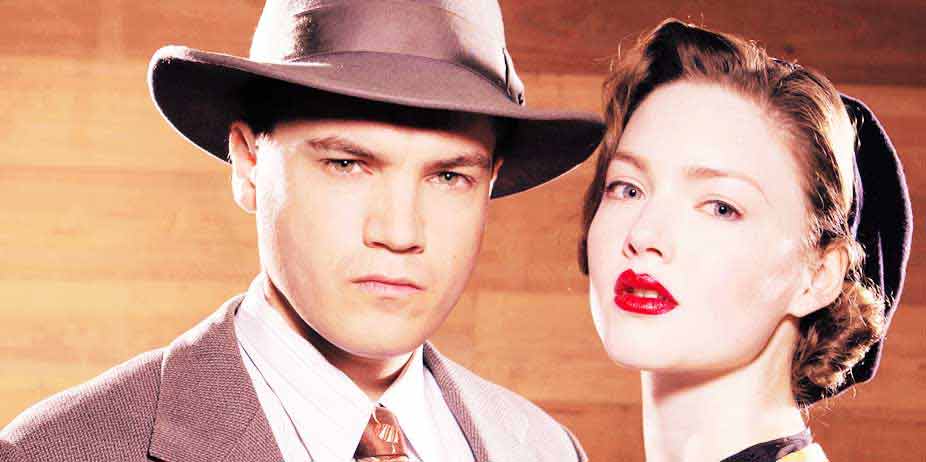
Bonnie & Clyde (2013)
I know next to nothing about the real Bonnie and Clyde, a pair of notorious bank and gas station robbers during the Great Depression. Perhaps that is for the best, since it made watching the miniseries fun.
Young Clyde knows as a child that his future is staring him in the face. After a near-death experience in the form of an illness, he starts "seeing the future," including Bonnie (Holliday Granger). But it isn't until he's an adult and has spent some time in jail that Clyde (Emile Hirsch) meets Bonnie when he crashes her wedding. He came for a beer and some fun, but he left with a vision of beauty that haunts him until he lands a date with her, several months after her wedding goes up in smoke.
The two have big dreams and a shared love of recklessness. They scheme a small-scale robbery together that lands him in jail, but this time Bonnie is there to get him out. Over the years, they rack up a small fortune and spend it, recruit and abandon various gang members, and the bodies start adding up. The dramatic publicity provided by journalist P.J. Lane (Elizabeth Reaser) is draws the attention of retired Texas Ranger Frank Hamer (William Hurt), who sets out to bring Bonnie and Clyde in ... dead or alive.
Historians familiar with this period have hammered this miniseries left and right for its inaccuracies, citing everything from sequence of events to the wrong car models turning up in some scenes. These problems will irritate those who know the period and the real story but pass unnoticed by most. If nothing else, it made me interested in the real events and curious to read more about them. Overall, it's a good series. It moves quickly but does do well in establishing the characters, it shows us the gradual development of Bonnie into someone with little empathy for anyone else, and it paints Clyde in a somewhat sympathetic light ... perhaps more than he deserves. It doesn't just feature their story, but wraps strong arms around the other people whose lives they intruded on or altered forever. It doesn't shy away from the aftermath of their crimes or hesitate in showing their brutality.
Despite the gorgeous costumes, terrific acting, decent script and peek into the 1920's, I can't help feeling that it was a little crasser than it needed to be in places. Did we really, as an audience, need to see Clyde raped in prison by a fellow inmate? Or Bonnie put her hand down the front of his pants? It always jars me to see things like this in a story is focusing on a time period that had, if not more class, than a little more sneakiness about such things. I think implication goes a long way and is more effective and less tasteless in the long run.
Sexual Content:
Three scenes of heavy foreplay. Two brief sex scenes including
thrusting (one of them a man-on-man rape). Two scenes in which
Bonnie physically stimulates Clyde out of shot (implied oral
sex, and she puts her hand down the front of his trousers in a
movie theater). A couple listens to another couple having sex in
the next room.
Language:
About a dozen abuses of Jesus' name, various profanities.
Violence:
Blood spurts as people are gunned down; there are many scenes
that include gunfights and people being killed; some of them in
visions.
Other:
Clyde has futuristic visions of people he will meet and events
that will happen. Bonnie is still married to another man when
she takes up with Clyde.
